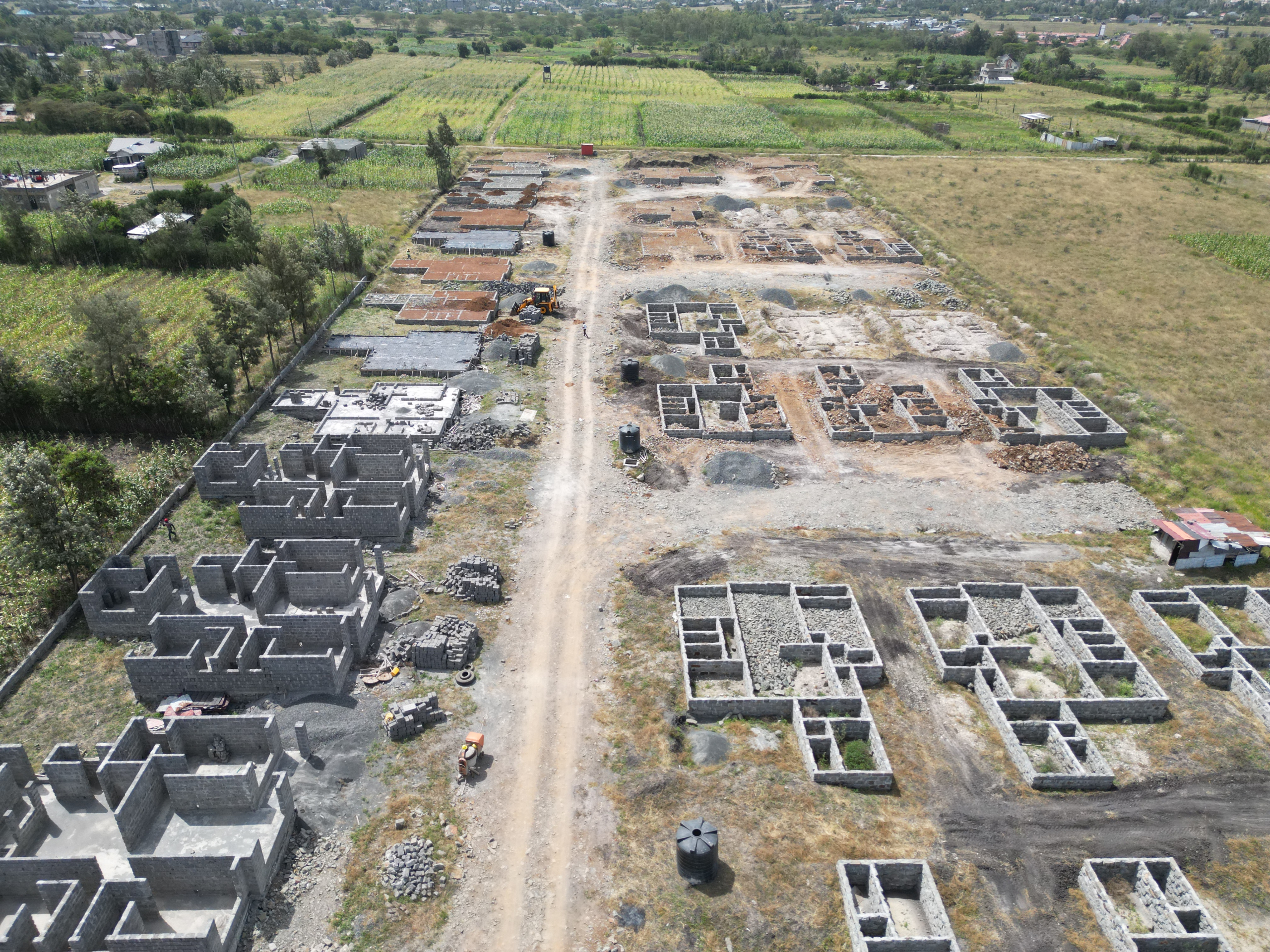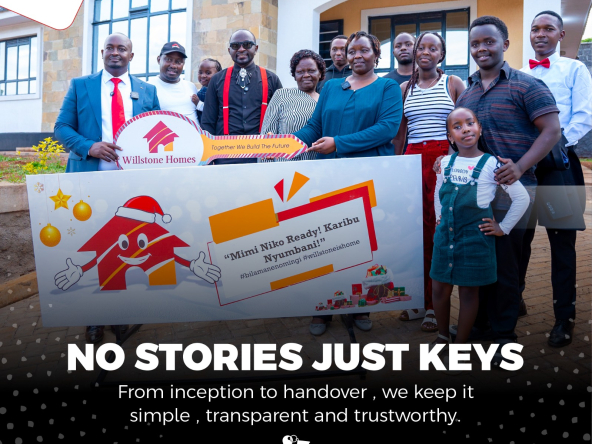In Kenya’s capital, where glass towers rise and housing demand continues to explode, an unlikely force is reshaping the city’s mid-tier real estate landscape: women investment groups Nairobi real estate. From informal chamas to registered cooperatives, women-led collectives are no longer just buying land — they’re building apartments, managing gated estates, and influencing the pricing of homes across satellite towns.
What began as savings circles among friends has evolved into a multi-billion-shilling movement. And as Nairobi’s real estate market matures, these groups are not just participating — they are setting new trends in mid-tier housing Nairobi.
The Rise of Chamas in Real Estate
Chamas — informal savings and investment groups common across East Africa — have historically helped women navigate financial exclusion. In the 1990s and early 2000s, most chamas focused on short-term goals: groceries, school fees, or small businesses. But as real estate values surged in Nairobi, forward-looking groups pivoted.
“We realized land was appreciating faster than our savings,” says Gladys , chair of a 25-member chama based in Embakasi. “So we stopped saving for consumer needs and began pooling to invest.”
Today, many chamas in Kenya are registered as limited companies or cooperatives, some managing assets worth hundreds of millions of shillings. In satellite towns like Ruaka, Ruiru, and Syokimau, several apartment blocks now carry names like Umoja Women Court or Tujenge Estate — testaments to this financial revolution.
Read Also: Sanitation Infrastructure Nairobi Estates: Impact on Property Values
From Plots to Apartments: The New Investment Model
Unlike individual buyers or speculative developers, housing projects by women groups are typically member-driven. Groups begin by purchasing affordable plots in Nairobi outskirts, then commission architectural designs, and finally construct multi-unit housing — either to rent or sell to members at subsidized rates.
A 2022 survey by the Kenya Property Developers Association (KPDA) found that women-led investment groups accounted for nearly 15% of all new mid-tier apartment units launched in Nairobi’s satellite towns between 2018 and 2022.
What sets these projects apart?
- Affordable pricing: Members access homes below market rate.
- Collective risk sharing: Projects are often debt-free or lightly leveraged.
- Long-term ownership: Unlike speculative developments, most groups plan to retain rental control for steady income.
These models have not only democratized access to real estate but also made female-led real estate Nairobi a viable investment force.
Case Study: A Syokimau Based Women Housing Initiative
One of the standout examples is a Syokimau based women housing Initiative — This is a 40-member chama that started in 2011 with weekly savings of KES 1,000 per person. By 2016, the group had purchased two acres in Syokimau. Instead of selling the land for quick profit, they built a 48-unit apartment block, complete with a daycare, small retail shops, and solar panels.
“We built what we needed as women: safety, childcare, income,” says co-founder Millicent . “And now we have tenants and a dividend every quarter.”
Their success has inspired similar property development women groups in Rongai, Kamakis, and even Machakos, where land is cheaper and margins can be higher.
Read Also: Smart Estate Security in Nairobi: Blending Tech and Guards in Gated Communities
Shifting the Mid-Tier Housing Market
The mid-tier segment — homes priced between KES 3 million and KES 8 million — has long been underserved. Large developers often target high-end buyers, while government-led affordable housing struggles with bureaucratic delays. This vacuum has been partially filled by investment chamas Nairobi, whose lean structures and personal networks allow them to build quickly and cost-efficiently.
“These women groups have redefined the mid-market,” says Anthony Waweru, a real estate analyst. “They build for utility, not just for brochures. And demand is outpacing supply.”
According to Knight Frank’s 2023 Nairobi Property Report, over 60% of mid-tier homes sold in the satellite towns were either developed or directly purchased by SACCOs, chamas, or cooperatives — with women-led groups showing the most sustained activity.
Tech, Trust, and Women in Real Estate
Digital tools have turbocharged this shift. Mobile banking, group-saving apps like Chamasoft, and blockchain-powered land registries have made it easier for chamas to verify land titles, automate savings, and track project finances transparently.
This has been key in reducing fraud — a common problem that derailed earlier real estate SACCOs Kenya in the 2000s.
Additionally, the cultural capital of women’s groups — anchored in trust, regular meetings, and social pressure — has given them a reliability edge over ad hoc male groups or solo investors.
“We don’t default. We follow through,” says Njeri of the Embakasi chama. “That’s why banks are now calling us.”
Indeed, Equity Bank, Cooperative Bank, and NCBA have launched dedicated products for women investment groups — offering construction loans, land purchase financing, and technical support.
Challenges Remain
Still, the road isn’t smooth. Women in Kenya’s housing market face several headwinds:
- Patriarchal land ownership laws still complicate title transfer or access to ancestral land.
- Access to large-scale funding remains limited; many groups rely solely on member contributions.
- Construction expertise is often lacking, leading to subpar buildings without professional supervision.
- Government recognition is minimal; most chamas operate below the radar of planning authorities.
However, associations like Kenya Women Holding and FIDA have stepped in to train groups on legal structures, contract negotiation, and sustainable construction.
Read Also: Why Luxury Real Estate Is Quietly Moving to Limuru and Tigoni — Away from Traditional Karen/Kitisuru
From Saving Circles to Structural Powerhouses
Once dismissed as social clubs, women investment groups Nairobi real estate networks are now influential actors in Kenya’s urban development narrative. They are not only building homes — they are redefining ownership, resilience, and community-driven capitalism.
As the housing market tightens and affordability becomes a national crisis, these groups may well be the most innovative response yet — rooted not in billion-shilling loans, but in solidarity, vision, and long-term planning.
And while their skyscrapers may not rival Westlands’ skyline — their foundations are changing Nairobi from the ground up.





